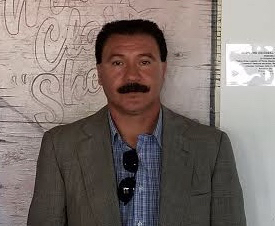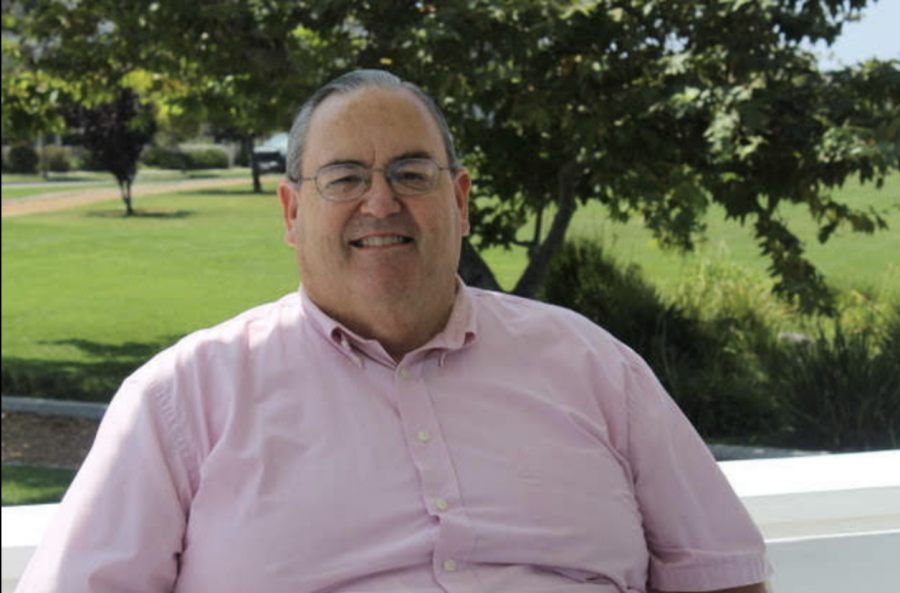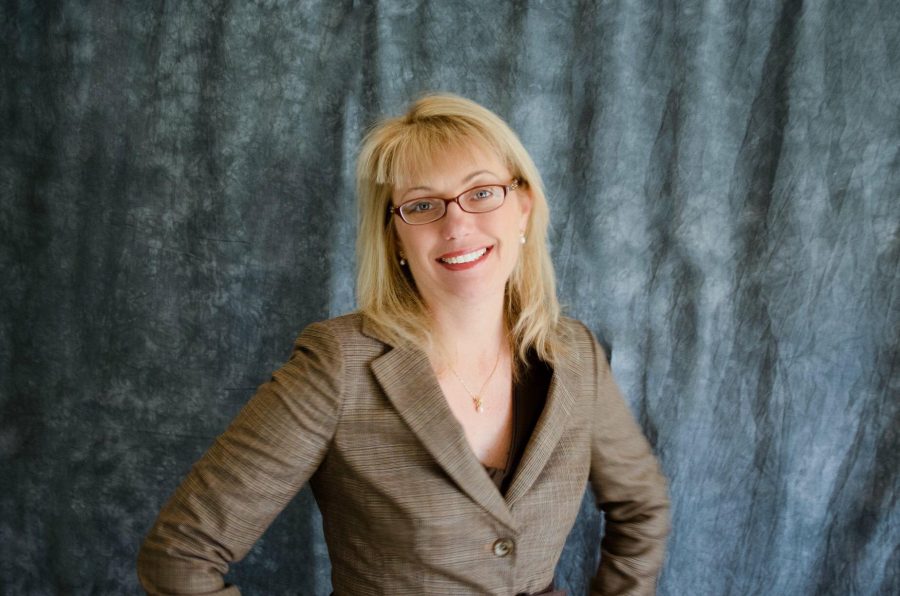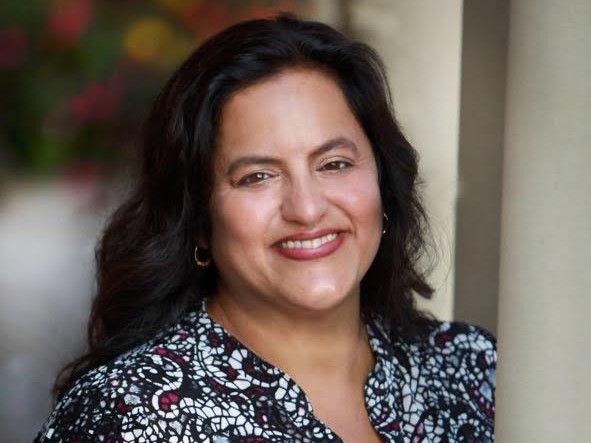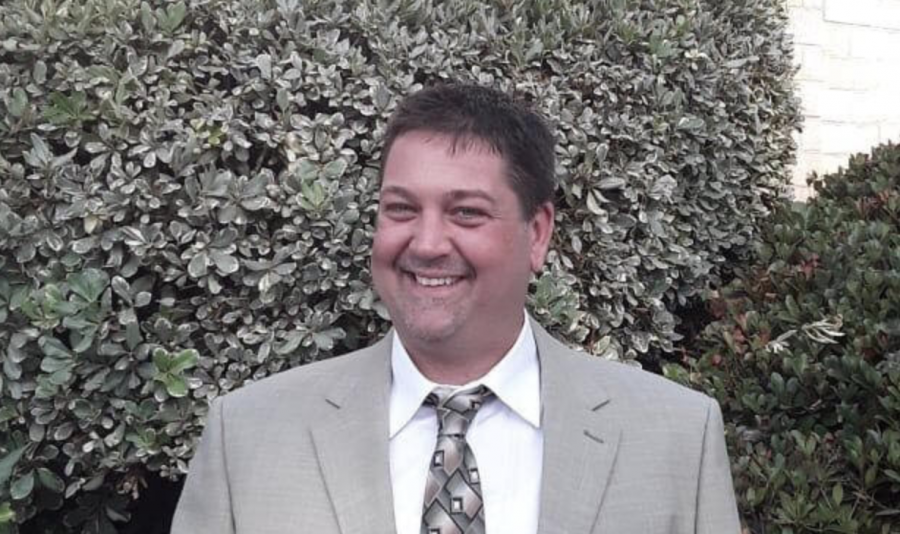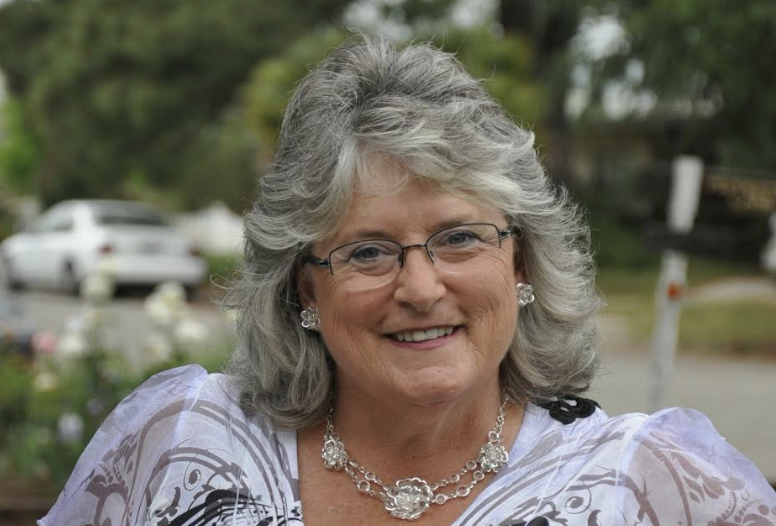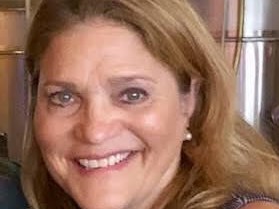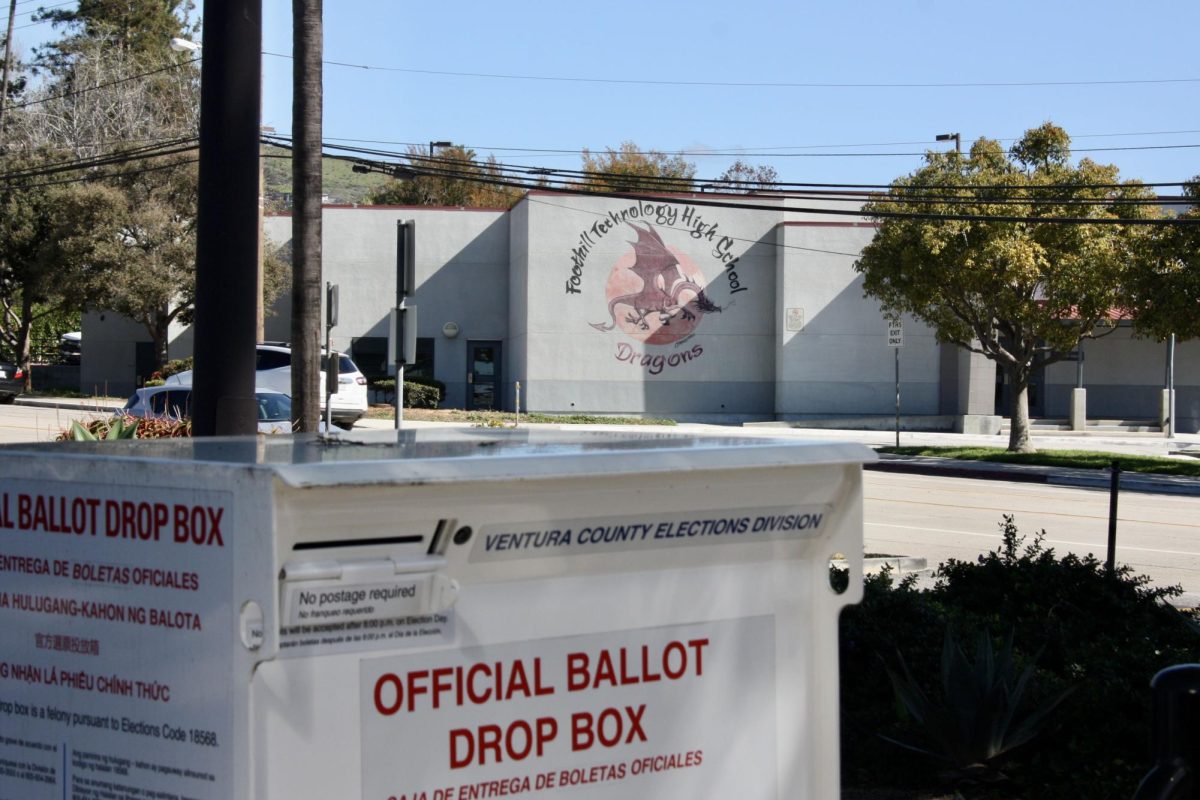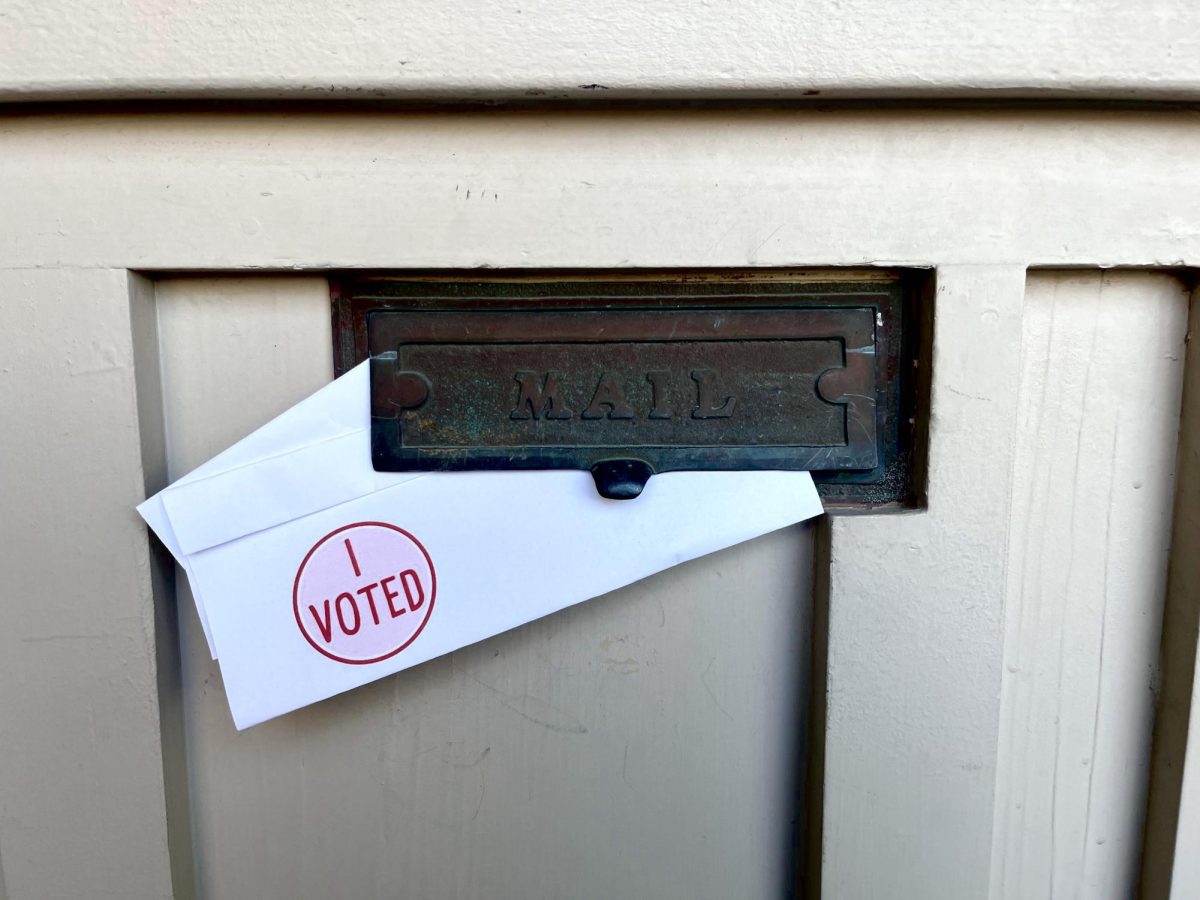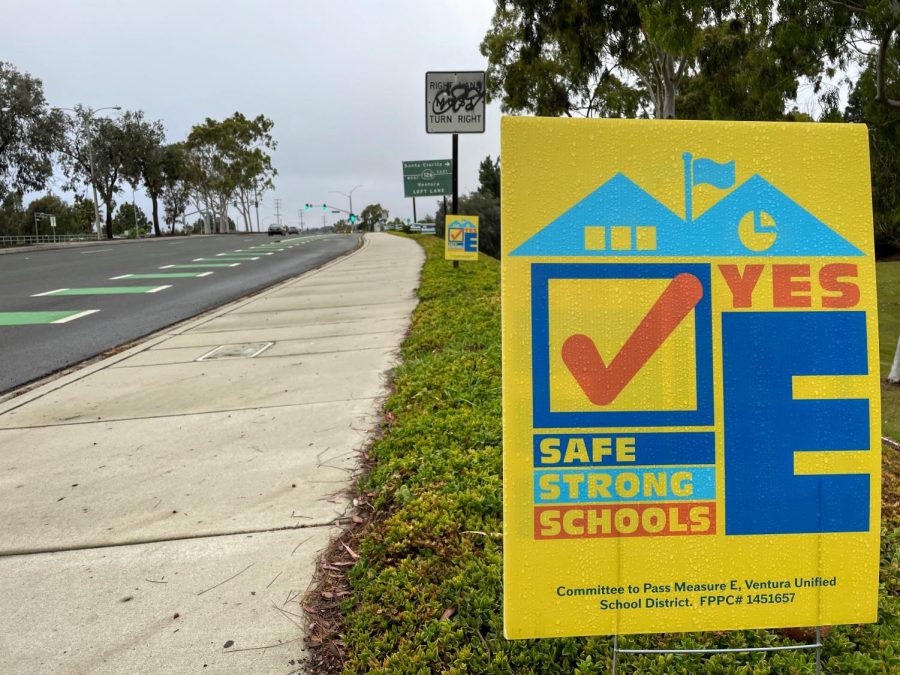TOMAS LUNA: My name is Tomas Juarico Luna. I am a candidate for School Board Trustee, District Number 1.
I would like to say it in Spanish as well.
Mi nombre es Tomas Juarico Luna. Soy candidato de School Board Trustee en Ventura Unified School District here in District Number 1, y estoy muy orgulloso de ser candidato Latino bilingüe que se específicamente las necesidades que tienen los padres y los alumnos amid the English learners here at the west side Ventura Avenue.
Thank you, all of you, for this interview, and we’re here, more than welcome at the west side Ventura Avenue District 1.
INTERVIEWER: What is your background as a Venturan?
LUNA: As I’ve been telling you previously, since the 1990s, you know, very active in my community, always, you know, volunteering at the schools. As probably you know, we have two different committees with Latino parents, one is ELAC and DELAC (English Learners Advisory Committee and District English Learners Advisory Committee). That means those committees [help] engage focus and English learners to make sure we have the proper tools to put those kids in a proper way and keep forward in their careers. In the meantime, I’m very active in LCAP (Local Control and Accountability Plan) where we have to discuss and make sure what is the [biggest] priority for the money. What we can do for the money. I’ll say again, I’ll fight for my community, for my Latino community, because really, us right now, if we do not do anything, it’s gonna be very difficult between right now and 10 years. And we do not want those people to be homeless, we do not want those people being on the streets, being gang members. No, no, let’s work with them because they will be the future for our communities.
INTERVIEWER: At the end of your term, if elected, how will Ventura Unified schools be using technology in ways they aren’t right now? What will be your steps to achieving that result?
LUNA: The technology, that specific issue, we discuss at the school district meetings and I totally agree, because we are in the century 21. We are going to make innovations with technology and make sure that the kids, they are ready. In high schools, they are prepared to have technology and education. If for one way or another, they did not have the opportunity to continue to college, and I don’t agree, because I want to make sure those kids have the means to complete their careers, but at least they have technology and education. They can survive on their own. Absolutely, I support technology and education. It’s something that we need to support every single day and make sure we have the proper tools for them to succeed in their education
INTERVIEWER: In your opinion, what is the next step to ensuring high school students are prepared for Common Core curriculum and its standardized testing (SBAC)?
LUNA: As of right now, we are in a very critical situation, because with those issues, definitely in this kind of situation, it’s not just the instructors. I believe that we need to encourage the parents. The same thing with the communication with the administrators. And make sure, again, we need to find the appropriate tools to make them have good results in those issues. We don’t have a choice. We need to start to encourage the parents to connect with the instructors. Basically, I see many the instructors, they make a lot of effort and additional time to make them have good results. But we see that really we need to still work more deeply, and as soon as possible. We don’t have to wait until the next semester. Let’s start to do what we have to do together. Because it’s not just instructors. We need to make sure parents are involved and communicating with instructors, at the same time with the administrators. Many times, I’m not going to point at anybody, but many of the times, sometimes the administrators they say “the instructor, the teacher, might not have the quality.” Of course we need to be sure that the educators have the quality education to provide good education to the kids. But again, we need to work together to make sure we have good results because right now, we are in a critical situation with the standards.
INTERVIEWER: The Ventura Unified budget for this year is around 188 million dollars. If I gave you ten million dollars more today to invest in our school district however you see fit, how would you spend it?
LUNA: It’s a very good question. I believe many of the candidates are for sure looking for something like that, to make it higher and better because that’s the way that we can decide to see if we can improve things, like I’ve said. You know, probably [give] a better salary to the instructors, because right now, we see that we’ve been losing a lot of teachers. Why? Because the salary is not competitive. We need to make sure to protect our instructors. That will help us. Money is important. No matter what, money is important. We need to make sure that they have money for transportation, we need to make sure that we have money for tools that they use at the schools, we need to make sure that money needs to be used for additional curriculum, activities. It’s very important. That money, we can enjoy it, put additional classes after the normal classes to help those kids for math, English, and many other activities and they can be more prepared for the future.
INTERVIEWER: What do you think is the most pressing issue facing our schools today and how can it be addressed?
LUNA: As of right now, it’s something that we need to change, what we have right now. If it doesn’t work, let’s make a change, invest in changes, and lets make it something different that we know is probably going to work. As of right now, we see that we have a new superintendent, that we have a professional career, that they’ve been doing excellent right now. I’m so happy that we have a new superintendent. The same thing, again, we need to figure out what is working and what is not. That way we can put attention to those issues. But again, we need to do it together. As a parent, that’s why I am here and I’m ready— I believe that if you have two, three different languages, you know, you’re bilingual, trilingual, you can have a successful career, you know, that’s easy and simple, and you can start to help other communities. Definitely, together we can make forward anything. That’s the point. I’m not going to do anything by myself. I’m not going to do it just with the Latino parents. We need to share ideas. And make forward things that work; doesn’t work, lets remove it. No matter what. Parents, it’s something that we need to engage them and find a way, how can we put them over there to collaborate in schools. One of the things that I’m not agreeing, that I’ve been working on, we need to find out exactly how we can connect those parents. But it’s not fair to try to connect those parents at 3 o’clock with those meetings. At 4 o’clock with those meetings. Many of my community, they’re low-income families. It’s hard to survive. They’re not going to go, leave their job at 2 o’clock—because sometimes they’re from Santa Barbara—and come here to make a meeting at 4 o’clock. No, we need to change those kinds of habits, and make sure those administrators give the opportunity to them to participate, and let them know, and hear what their opinion is. If the opinion probably helps, because each individual opinion would help, to make it, and make results more stronger.
INTERVIEWER: Sometimes to students, school board policy decisions seem to come out of nowhere. Most students don’t know their school board members, don’t know when the board meets, and aren’t informed about the decisions the board makes on a regular basis, like for example decisions about curriculum or disciplinary policies. If you are elected, how do you plan to cultivate a closer relationship between the board and the students, ensuring that they get a chance to speak on issues that pertain to them and are informed of decisions once they happen?
LUNA: This is a very good question. This is one of my issues that I want to try to implement. With not just me, but the rest of the board directors. To let them know that we can start to show up to visit the schools. To let them know, or send a letter to each individual school to let them know what we’re doing. What is our next step? I want to hear from them. You know, we can make meetings, with the students, they should be known because you’re part of the system. You tell me what you need. What is the proper way for what we can do for you to make improvements to your education, to improve, or change the habits for other people that, you know, have bullying problems? Many of the issues, students are probably people that can participate and be informed about what we’re doing with our decisions. Definitely, I support that we need to communicate with students. And I believe students that [are] 18-years-old, they can be ready to be on the School Board as well, then you can support fresh ideas, and it’s important. I hope you don’t have the idea to be there for 25 years in the same chair because I believe you’re doing great, but I believe it’s time we get new people, new faces, and it’s time to make better, probably, decisions. We respect what you did in 20 years, but let me do something else, for different candidates, that might work and make it better than the School Board. But definitely, students need to be informed about what we want to do, in order that they might have an opinion, to make adjustments in what our opinion is going to be.


